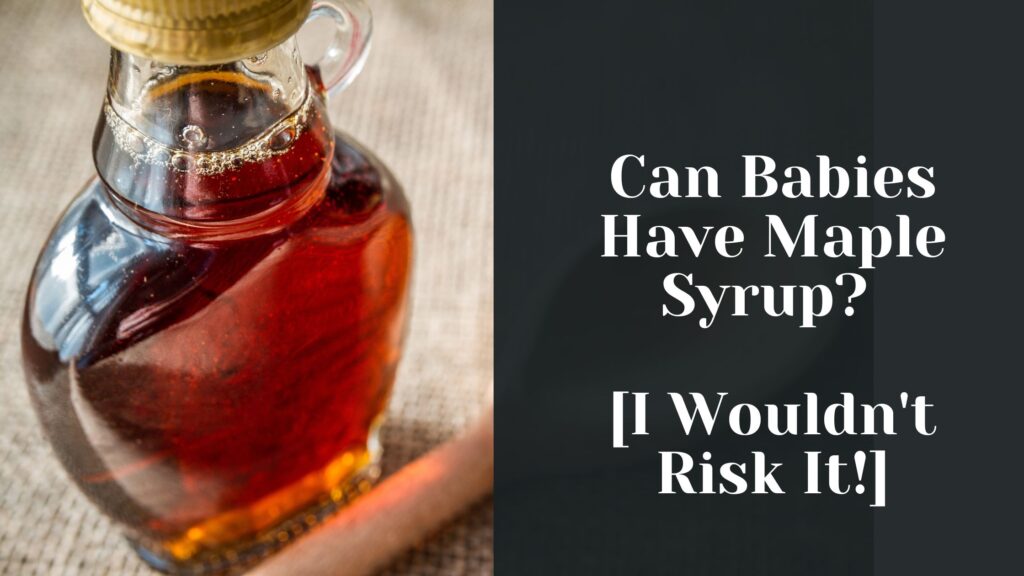As a parent, making sure your little one is getting the best nutrition possible is a must.
When it comes to introducing new foods, you may have concerns about what is and is not safe.
Mango is a delicious and nutritious fruit that many of us want to incorporate in our children’s diet, but can babies eat mango?
In this article, we’ll cover everything you need to know about giving mango to your baby, including:
- The age range for when babies can start eating mango
- How to prepare mango for babies
- The potential risks or benefits of giving mango to babies
- How much mango babies can eat
- The potential for mango allergies in babies
And more!
Can Babies Eat Mango?
Babies can eat mango once they’re old enough to have solid foods. The American Academy of Pediatrics recommends introducing solid foods to babies around the age of 6 months. At this age, babies are able to chew and swallow solid food, and their digestive systems are developed enough to handle new foods.
Mango is a great source of vitamins A and C, as well as fiber and antioxidants.
Just be sure to cut it into small, age-appropriate pieces to reduce the risk of choking.
You’ll also want to remove the skin and any large seeds before giving it to your baby.
It’s worth noting that mango does contain allergens, so if you have a family history of allergies, you may want to be cautious when introducing mango to your baby.
It’s always a good idea to introduce new foods one at a time, so you can monitor for any reactions.
And if you have any concerns about your baby’s allergies, it’s always best to consult with your pediatrician before introducing new foods.
How Much Mango Can Babies Eat?
As with any new food, it’s important to start with small servings and gradually increase the amount as your baby gets used to it.
In general, you should give your baby about 1/4 to 1/2 cup of fruit per day, depending on their age.
For a 6-month-old baby, this would translate to about 1/4 cup of mango. You can gradually increase the serving size as your baby gets older and is able to handle more.
It’s also important to remember that mango is just one part of a balanced diet.
Be sure to offer a variety of fruits, vegetables, and other sources of nutrition to ensure that your baby is getting all the nutrients they need.
Mango Recipes for Babies
Here are a few easy and nutritious mango recipes to try:
- Mango Puree: Simply peel and chop a ripe mango, then blend it in a food processor or blender until smooth. You can add a little water or breast milk to thin it out, if needed. This puree is perfect for introducing your baby to the taste of mango, and it can be served as is or mixed with other purees for added variety.
- Mango Smoothie: To make a mango smoothie for your baby, blend together 1/4 cup of mango puree, 1/4 cup of milk (non dairy milk, breast milk, or formula), and a few ice cubes. You can also add a handful of baby oatmeal or a spoonful of nut butter for added nutrition.
- Mango Oatmeal: To make mango oatmeal for your baby, simply cook up some oats according to the package instructions, then stir in a few tablespoons of mango puree. You can also add a splash of milk or a spoonful of nut butter for added flavor and nutrition.
Can Babies Be Allergic to Mango?
Like any new food, there is a risk that your baby could be allergic to mango.
Allergies to mango are relatively rare, but they do occur. If your baby has a history of allergies or you have a family history of allergies, you may want to be cautious when introducing mango.
To reduce the risk of an allergic reaction, it’s a good idea to introduce mango (and any new food) one at a time, so you can monitor for any reactions.
Common symptoms of a food allergy in babies include:
- Rash or hives
- Swelling of the face, lips, tongue, or throat
- Difficulty breathing
- Vomiting or diarrhea
If you notice any of these symptoms after giving your baby mango, it’s important to stop feeding it to them immediately and consult with your pediatrician.
FAQ
Can babies eat dried mango?
Yes, babies can eat dried mango as long as it’s cut into small, age-appropriate pieces and doesn’t contain any added sugars or preservatives. Dried mango can be a convenient snack option for babies, but it’s important to remember that it’s not a substitute for fresh fruit.
Can babies eat frozen mango?
Yes, babies can eat frozen mango as long as it’s cut into small, age-appropriate pieces and doesn’t contain any added sugars or preservatives. Frozen mango can be a convenient option for adding to smoothies or purees, and it can also be a refreshing treat on a hot day.
Can babies eat mango puree?
Yes, babies can eat mango puree as long as it’s made with fresh, ripe mango and doesn’t contain any added sugars or preservatives. Mango puree is a great way to introduce your baby to the taste of mango, and it can be mixed with other purees or added to oatmeal or smoothies for added nutrition.
Can babies eat mango skin?
It’s generally not recommended for babies to eat mango skin, as it can be tough and hard to chew. In addition, the skin of a mango may contain pesticides or other contaminants that you don’t want your baby to ingest. It’s best to peel the mango before giving it to your baby to ensure that it’s safe and easy to eat.
Conclusion
Mango is a delicious and nutritious fruit that can be a great addition to your baby’s diet once they’re old enough.
Just be sure to introduce it once your baby is at least 6 months old.
Cut the mango into small pieces, and monitor for any reactions.
With a little bit of care and attention, mango can be a tasty and healthy treat for your little one.
Remember, it’s always a good idea to consult with your pediatrician before introducing new foods to your baby. They can provide personalized advice and guidance based on your baby’s specific needs and allergies.


